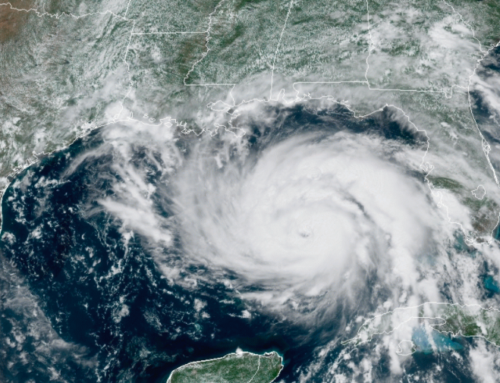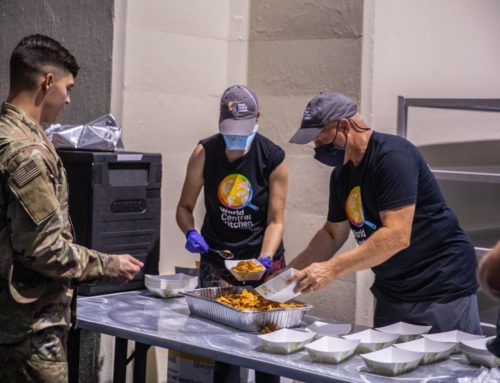Dear Friends,
Many Americans are having to face decisions that were unthinkable just two months ago. Essential worker protections are lacking. Over 35 million Americans have filed for unemployment aid since the President declared a national emergency on March 13. Tens of millions of Americans may lose employer-sponsored healthcare as they lose their jobs. And lines stretch for miles at food banks in states big and small.
To read our full blog post on food security and the policy proposals we have devised to address this critical issue, click here.
Mitch Landrieu
Founder and President
News and stories about how southern communities are responding to COVID-19
Alabama: Due to COVID-19, the United Way of Southwest Alabama’s 211 support line has been flooded with calls; the primary needs have been food security, utility assistance, and housing assistance.
Arkansas: A $500,000 grant from the Walmart Foundation will establish the Northwest Arkansas Equitable Food Response and Relief Fund to coordinate grants to organizations addressing COVID-19 related food insecurity.
Florida: All Faiths Food Bank has experienced a 40% increase in new clients at its mobile food bank distributions. Thousands of people turned out for their Saturday drive-thru.
Georgia: Golden Harvest Food Bank in Graniteville has received triple their normal amount of food assistance requests, and food insecurity has gone up by 42% across the service area.
Kentucky: The One Louisville: COVID-19 Response Fund has received many applications for food insecurity and food service. So far $8.6 million dollars has been awarded to 150 organizations.
Louisiana: A historic number of people in Louisiana have applied for food assistance, but many have been deemed ineligible for SNAP because of the boosted unemployment payments that inadvertently raised their income above the threshold to qualify.
Mississippi: Food pantries across the Gulf Coast have seen an increase in families needing help. Now that families are receiving unemployment benefits, some no longer meet the income requirement for SNAP benefits, resulting in an increase of families leaning on local food pantries.
North Carolina: Even though stay-at-home restrictions are easing up, thousands of North Carolina families are still in need of food and other necessities after historic unemployment levels. The Bountiful Blessings Food Pantry in Gastonia has gone from feeding 1,200 people a month to 3,500 people a week.
South Carolina: Harvest Hope food bank in Florence, which has seen a five-fold rise in the number of people requesting food assistance, received 1.9 million meals from the Duke Endowment grant to Feeding the Carolinas.
Tennessee: Second Harvest Food Bank, which serves 18 counties in East Tennessee, has seen an increase in the demand for food in their areas of 50% or more. They’ve gone from providing 200,000 pounds of food per week to 500,000 pounds per week.
Texas: The University of Texas Rio Grande Valley has seen their students increasingly struggling with food insecurity and lack of access to affordable, fresh, and healthy food, so they created an initiative to help provide students and employees with easy access to fresh produce.
Virginia: As the COVID-19 pandemic has led to increased food insecurity, Augusta Health is hoping their ‘Crops to Community’ program will help; they’re buying farmers’ excess produce and supplying the community with food.
West Virginia: The large majority of the approximately 22,000 students in West Virginia who are either home-schooled or attend private schools that don’t use the National School Lunch Program aren’t eligible for grocery relief payments.
Recent News & Commentary
The Food and Environment Reporting Network: Food insecurity doubles due to coronavirus, may exceed Great Recession
One-fifth of Americans say they have had trouble getting enough food to eat during the economic turmoil of the coronavirus pandemic, a nearly overnight doubling of food insecurity in the United States. The nationwide insecurity rate reported is far higher than the rate reported during the worst of the Great Recession.
NY Times: As Hunger Spreads With Pandemic, Government Takes Timid Steps
As hunger spreads across a locked-down nation, the Trump administration has balked at the simplest ways to feed the hardest hit, through expanding school meals programs and food-stamp benefits and waiving work requirements as unemployment reaches record levels.
Brookings Institution: The COVID-19 crisis has already left too many children hungry in America
Since the onset of the COVID-19 pandemic, food insecurity has increased in the United States. This is particularly true for households with young children.
Resources
World Central Kitchen: Introducing Restaurants for the People
After launching #ChefsForAmerica in March, World Central Kitchen is now committing $50 million to keep local, independent restaurants open and working so they can provide nourishing meals for people in need in their communities.
America’s Food Fund
COVID-19 has left millions unsure where their next meal will come from. The Emerson Collective, Leonardo DiCaprio and Apple launched America’s FoodFund, supporting Feeding America and World Central Kitchen. Click to donate.



